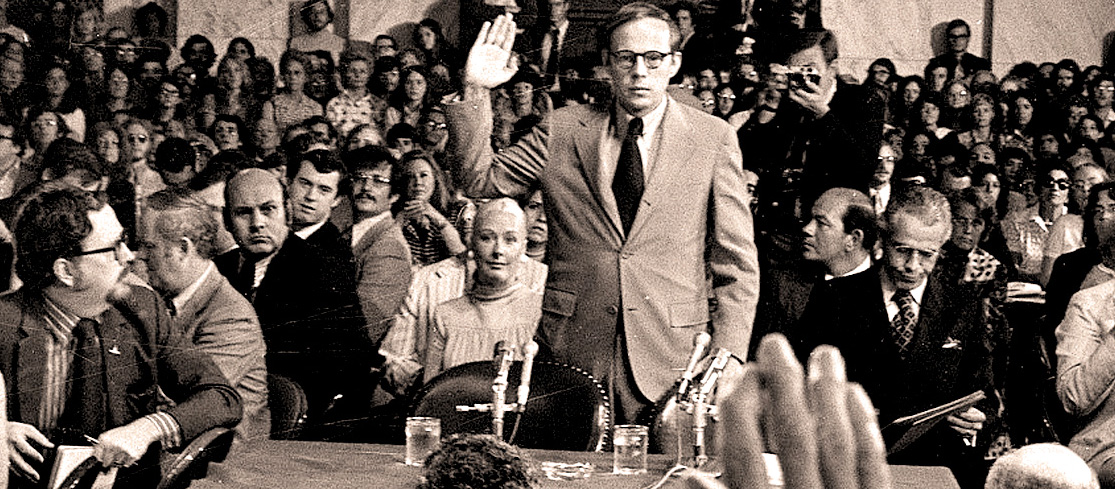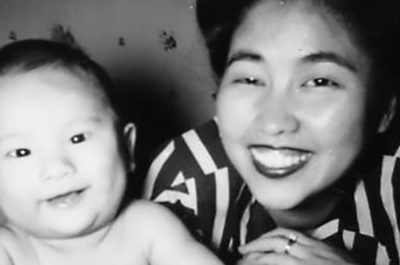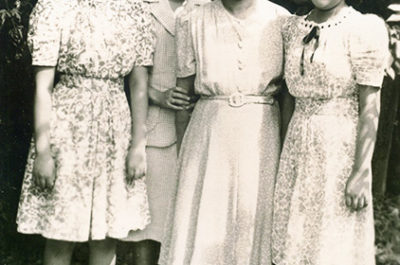The first time I witnessed an American president trying to destroy American democracy was when I was living in Minneapolis in the early 1970s. I ended up in Minneapolis as a result of what I viewed as my failed attempt to become a musician. I grew up in Sioux Falls, South Dakota, where my family moved in 1955 after my father accepted a position as an economics professor at Sioux Falls College. In grade school, I wanted to play saxophone but got stuck playing clarinet. I never liked the clarinet, but I became fairly proficient at it. In 1967, my senior year of high school, I was the first chair clarinet in All-State Band and All-State Orchestra.
In high school, I had discovered jazz and decided I wanted to become a jazz musician. Mark Miller, a bass player friend of mine, was going to North Texas State, which was then the only school in the country with a jazz program. Mark encouraged me to go there. Even though I had a scholarship to Michigan State University, I decided to go to Texas on a student loan. My father never forgave me.
At North Texas State, I quickly discovered I was musically way behind the other jazz students. In my last year of high school, I’d bought a tenor sax but I couldn’t really play it well. Worse, I found out I couldn’t really read music. I never had a teacher who tried to teach ear training, so I couldn’t sight sing, and when I looked at sheet music I didn’t have an aural image of what the notes would sound like. I realized I had been learning music by rote, unlike the other music students who could read music. That discovery was devastating.
When I auditioned for the jazz bands, I failed to get into any of them, as I couldn’t read jazz charts. In concert band, I ended up as first chair of the third clarinet section. At the end of my first semester, I got an F in music theory, a C in clarinet, a B in sax, and an A in piano. The A in piano was a surprise as I was a beginner. I had taken three months of piano lessons in my senior year of high school. When I got my grades, I felt my first semester of college proved I had no musical talent.
The second semester, I totally gave up on music and didn’t enroll in a single music class. I didn’t know what I should major in instead of music, but that term I was in an advanced placement English class. On the first paper I handed in, the teacher wrote me a note saying that my writing was really good and I should consider majoring in English. I’d always loved to read, but I’d never had any interest in writing. Nevertheless, I decided to switch my major to English.
I got an A in my English course, but I flunked all the others. At the end of the second semester, I didn’t know what to do, so I went back home to Sioux Falls. In my senior year of high school, I played sax in a rock band called the Hursmen, which disbanded when everyone went off to different colleges. I’d met some other rock musicians the summer after high school. I looked them up, thinking I could play in rock bands for a couple of years and then quit music altogether.
I joined a band called the Mourners. They were playing mostly soul music at the time. But I’d come back from Texas with records by groups like Blood Sweat & Tears, Butterfield Blues Band, Sons of Champlin, and Chicago. So we started adding songs by those bands, and we were actually sounding pretty good. There was a band in Kansas called the Apostles, which we used to hear from time to time. They broke up and their booking agent was looking for a band to take over the name. He called us, and we went to Kansas, auditioned, and became the Apostles.
We had a lot of fun, playing mostly for dances in small towns in South Dakota, Iowa, Nebraska, and Colorado. In Sioux Falls, we opened concerts for the Beach Boys and Tommy James. But by 1970, the band broke up, as a couple of the guys moved away. Al Christopherson, our bass player, and his girlfriend Sue Quast had moved to Minneapolis. Al called to tell me I should think about moving there, as it was a fun place. So I went to Minneapolis and stayed with them for a while.
Al and Sue lived in a hippie enclave in a Minneapolis neighborhood south of downtown near Franklin Avenue. There were dozens of people our age living there, and we had neighborhood parties all the time. It was a lot of fun, but I eventually got my own place near the Minneapolis Institute of Arts and took a night job at a factory. Meanwhile, Al, who was a great bass player, started working with a band that moved to LA. I still saw Sue from time to time, but I had started to get depressed and didn’t want to be around people most of the time. I finally got so down and disgusted with myself that one day I went down to a music store and sold my sax and my flute. I gave Sue my clarinet.
Although I was becoming increasingly isolated, Kurt, a friend from the old neighborhood, returned from the merchant marines and stopped by to see me. Around the time the Watergate hearings started, he and I got an apartment together. We were both working temporary jobs, so we had lots of time to watch the hearings. We had an old black and white TV with no channel knob. We changed channels with a pair of pliers.
That’s how I remember Minneapolis when I lived there in the early 1970s. I was depressed most of the time, I didn’t listen to music, I didn’t read, I worked menial jobs, I was usually broke, I had no plans, and Watergate and Vietnam were on television all the time. For the next 15 years of my life, that was about as good as it would get.



